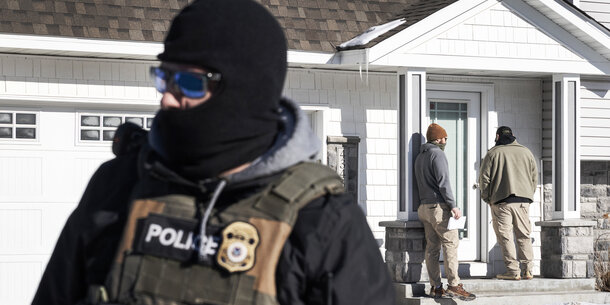Update: On June 23, 2021, the Supreme Court ruled in favor of B.L., a high school cheerleader who was suspended from the cheer team after using obscenities on Snapchat. The Court held that the school overstepped in disciplining B.L. for her off-campus speech, affirming the First Amendment rights of public-school students. Justice Breyer recognized in his opinion that schools are “nurseries of democracy” and that "the school itself has an interest in protecting a student’s unpopular expression, especially when the expression takes place off campus." Justice Breyer went on to expand on this point: “That protection must include the protection of unpopular ideas, for popular ideas have less need for protection. Thus, schools have a strong interest in ensuring that future generations understand the workings in practice of the well-known aphorism, ‘I disapprove of what you say, but I will defend to the death your right to say it.’” Social media is a critical space for students to engage in a wide variety of self-expression, political speech, and activism. We are pleased that the Court recognized this and reaffirmed that students retain the right to express themselves freely outside school. Read the Court’s opinion here.
Background:
On March 31, 2021, the Brennan Center, along with the Electronic Frontier Foundation (EFF) and the Pennsylvania Center for the First Amendment, filed an amicus brief arguing that statements made by students on social media when they are off-campus should be fully protected by the First Amendment. In Mahanoy Area School District v. B.L., a high school cheerleader posted obscenities about her cheer program to Snapchat after she failed to make the varsity squad, which violated the cheerleading program’s rule that students cannot post any “negative information” about cheerleading online. The posts were uploaded over the weekend and outside of school grounds, but one of her followers took a screenshot and shared it with school authorities, who suspended her from participating in the cheer program for a year. The student and her family sued the school district in response.
The Third Circuit Court of Appeals ruled last year that an exception from Tinker v. Des Moines – a Vietnam War-era case about students wearing black armbands in protest of the War – permitting regulation of students’ speech where it causes material and substantial disruption to the operations of school does not apply to off-campus speech like social media, at least where it does not threaten violence to others. The appeals court held that, even if off-campus speech shared on social media finds its way into school via other students’ smartphones or devices, schools do not have the power to discipline the original poster for it.
The Supreme Court granted certiorari earlier this year, and the case is being litigated by the ACLU of Pennsylvania. The Brennan Center joined a brief drafted by EFF in support of the student, urging the Supreme Court to uphold the Third Circuit’s decision. The brief argues that the Tinker exception should not allow public schools to punish off-campus speech and that it is critical to limit the Tinker exception to on-campus speech given the central role social media plays in students’ lives. Social media has increasingly become a platform for students to engage in a wide variety of self-expression, political speech, and activism. Expanding Tinker to allow public schools to punish students for speech expressed off-campus would dramatically expand schools’ power to police students’ private lives and chill important, constitutionally protected expression.
The Liberty and National Security Program has raised concerns regarding the monitoring of K-12 students’ social media, including op-eds in the Washington Post and Sun Sentinel, a resource on school district expenditures on monitoring tools, and a joint statement of civil and human rights concerns with the Center for Democracy and Technology. If schools are given broad authority to punish students for speech on social media, they will have incentive to step up their monitoring; if they are limited to circumstances in which the harm arising from the speech is significant, not merely disruptive, they are likely to spend less time tracking students’ social media.

